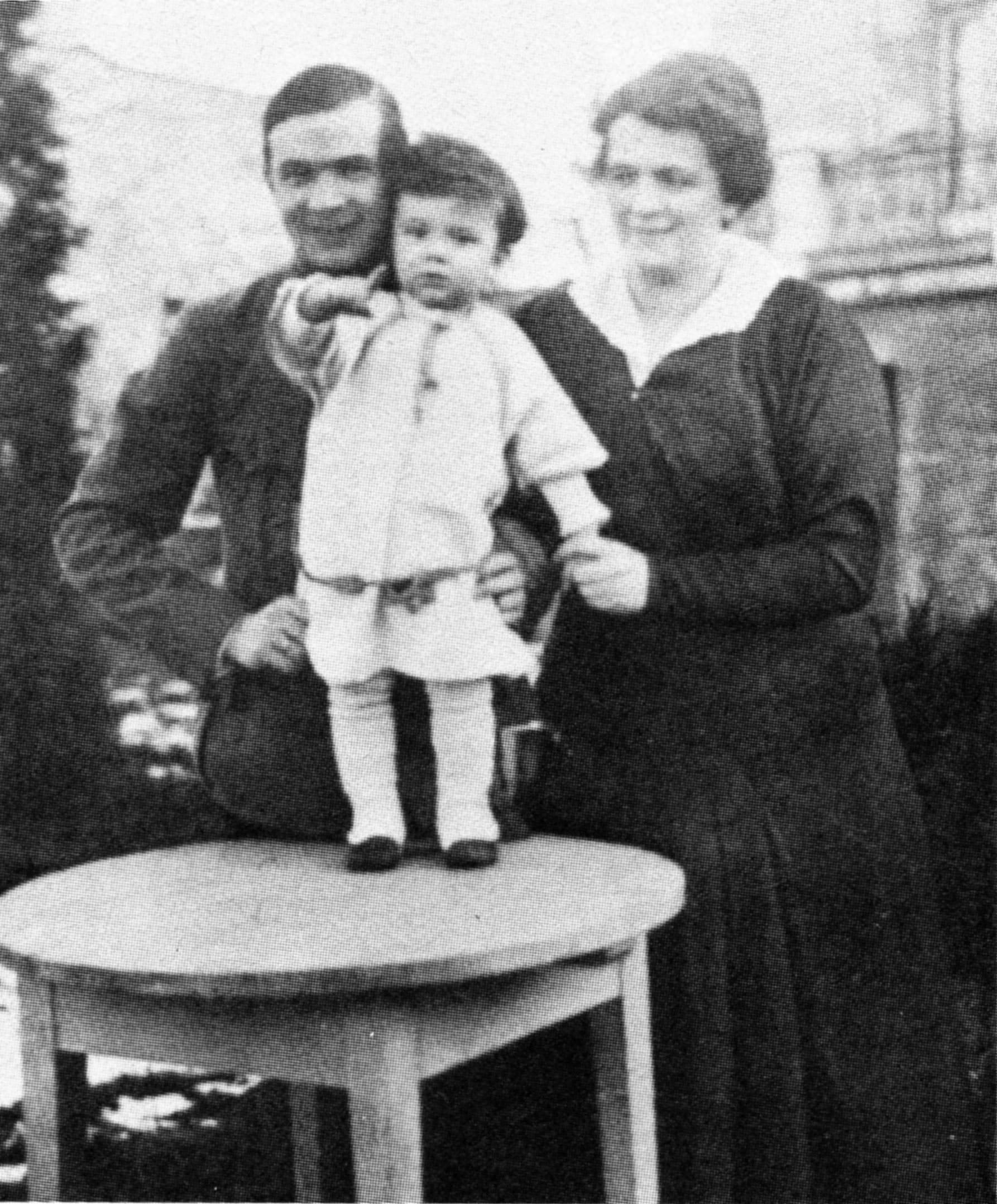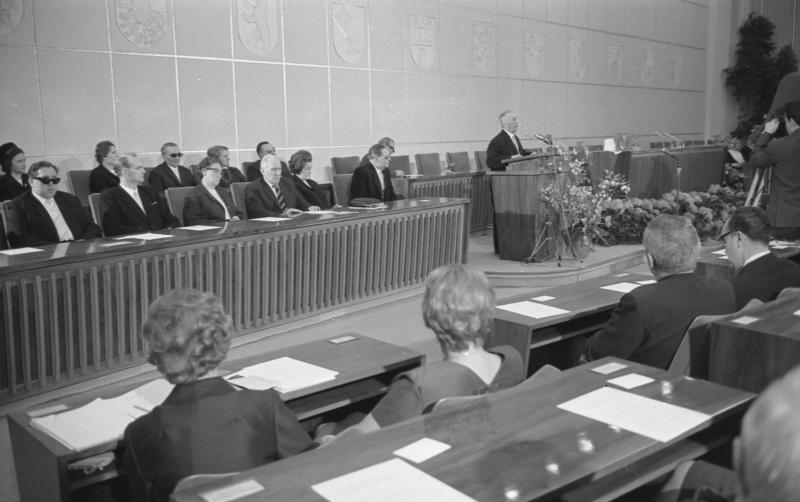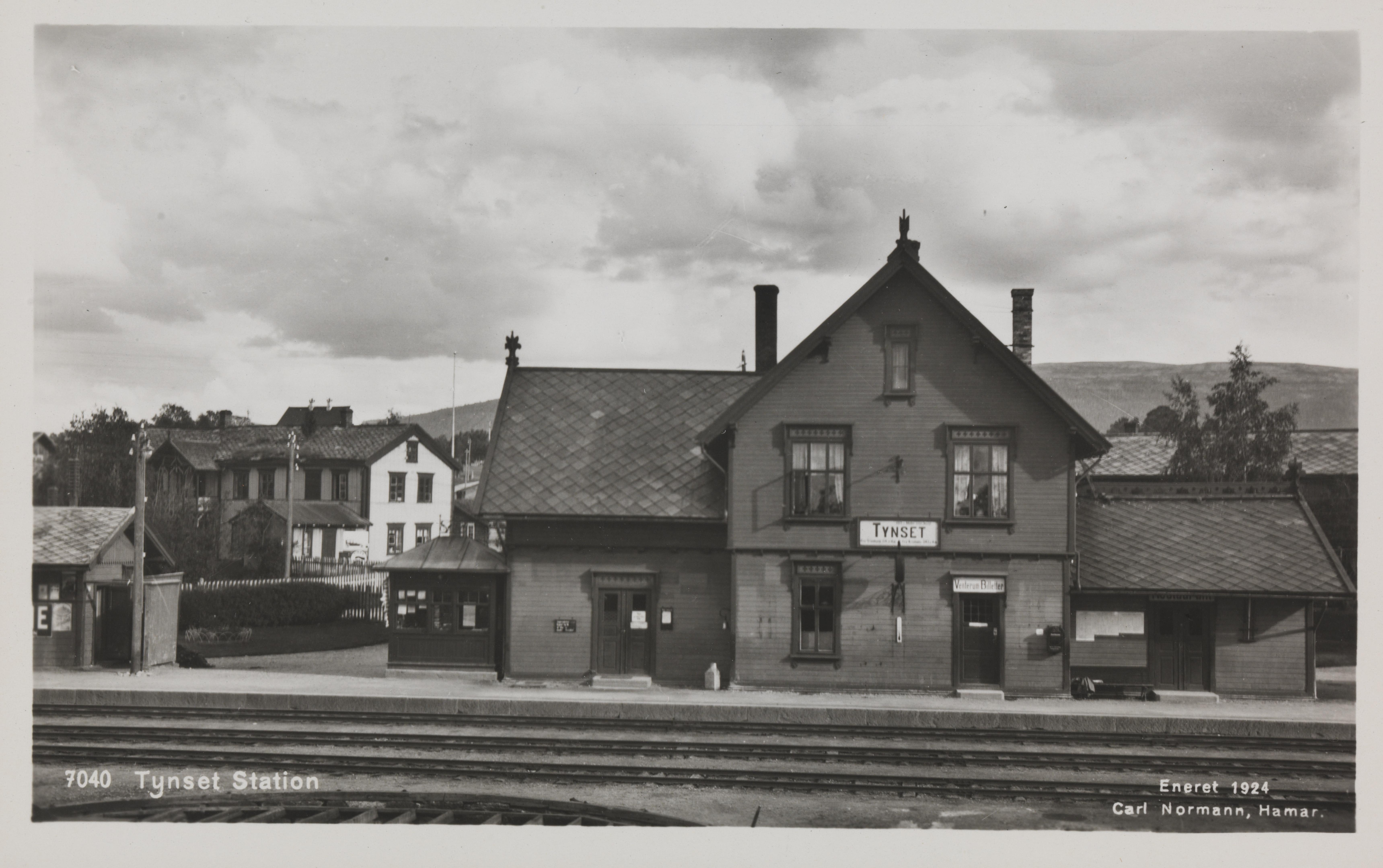|
Wolfgang Hildesheimer
Wolfgang Hildesheimer (9 December 1916 – 21 August 1991) was a German author who incorporated the Theatre of the Absurd. He originally trained as an artist, before turning to writing. Biography Hildesheimer was born of Jewish parents in Hamburg. His grandfather was Azriel Hildesheimer, the moderniser of Orthodox Judaism in Germany. He was educated at the '' Humanistisches Gymnasium'' in Mannheim () from 1926 to 1930. He then attended Odenwaldschule until 1933, when he left Germany. He was then educated at Frensham Heights School in Surrey, England. He studied carpentry in Mandatory Palestine, where his parents had emigrated, and underwent psychoanalysis in Jerusalem. He studied painting and stage building in London. In 1946 he worked as a translator and clerk at the Nuremberg trials. Afterward, he worked as a writer and was a member of Group 47. In 1980, he gave the inaugural address at the Salzburg Festival, "Was sagt Musik aus?" (What does music say?). [...More Info...] [...Related Items...] OR: [Wikipedia] [Google] [Baidu] |
Hamburg
(male), (female) en, Hamburger(s), Hamburgian(s) , timezone1 = Central (CET) , utc_offset1 = +1 , timezone1_DST = Central (CEST) , utc_offset1_DST = +2 , postal_code_type = Postal code(s) , postal_code = 20001–21149, 22001–22769 , area_code_type = Area code(s) , area_code = 040 , registration_plate = , blank_name_sec1 = GRP (nominal) , blank_info_sec1 = €123 billion (2019) , blank1_name_sec1 = GRP per capita , blank1_info_sec1 = €67,000 (2019) , blank1_name_sec2 = HDI (2018) , blank1_info_sec2 = 0.976 · 1st of 16 , iso_code = DE-HH , blank_name_sec2 = NUTS Region , blank_info_sec2 = DE6 , website = , footnotes ... [...More Info...] [...Related Items...] OR: [Wikipedia] [Google] [Baidu] |
Peter Weiss
Peter Ulrich Weiss (8 November 1916 – 10 May 1982) was a German writer, painter, graphic artist, and experimental filmmaker of adopted Swedish nationality. He is particularly known for his plays ''Marat/Sade'' and ''The Investigation'' and his novel ''The Aesthetics of Resistance''. Peter Weiss earned his reputation in the post-war German literary world as the proponent of an avant-garde, meticulously descriptive writing, as an exponent of autobiographical prose, and also as a politically engaged dramatist. He gained international success with ''Marat/Sade'', the American production of which was awarded a Tony Award and its subsequent Marat/Sade (film), film adaptation directed by Peter Brook. His "Auschwitz Oratorium," ''The Investigation'', served to broaden the debates over the so-called "Aufarbeitung der Vergangenheit" (or formerly) "Vergangenheitsbewältigung" or "politics of history." Weiss's magnum opus was ''The Aesthetics of Resistance'', called the "most important Ge ... [...More Info...] [...Related Items...] OR: [Wikipedia] [Google] [Baidu] |
People From Poschiavo
A person ( : people) is a being that has certain capacities or attributes such as reason, morality, consciousness or self-consciousness, and being a part of a culturally established form of social relations such as kinship, ownership of property, or legal responsibility. The defining features of personhood and, consequently, what makes a person count as a person, differ widely among cultures and contexts. In addition to the question of personhood, of what makes a being count as a person to begin with, there are further questions about personal identity and self: both about what makes any particular person that particular person instead of another, and about what makes a person at one time the same person as they were or will be at another time despite any intervening changes. The plural form "people" is often used to refer to an entire nation or ethnic group (as in "a people"), and this was the original meaning of the word; it subsequently acquired its use as a plural form of per ... [...More Info...] [...Related Items...] OR: [Wikipedia] [Google] [Baidu] |
Writers From Hamburg
A writer is a person who uses written words in different writing styles and techniques to communicate ideas. Writers produce different forms of literary art and creative writing such as novels, short stories, books, poetry, travelogues, plays, screenplays, teleplays, songs, and essays as well as other reports and news articles that may be of interest to the general public. Writers' texts are published across a wide range of media. Skilled writers who are able to use language to express ideas well, often contribute significantly to the cultural content of a society. The term "writer" is also used elsewhere in the arts and music, such as songwriter or a screenwriter, but also a stand-alone "writer" typically refers to the creation of written language. Some writers work from an oral tradition. Writers can produce material across a number of genres, fictional or non-fictional. Other writers use multiple media such as graphics or illustration to enhance the communication of thei ... [...More Info...] [...Related Items...] OR: [Wikipedia] [Google] [Baidu] |
German Male Dramatists And Playwrights
German(s) may refer to: * Germany (of or related to) **Germania (historical use) * Germans, citizens of Germany, people of German ancestry, or native speakers of the German language ** For citizens of Germany, see also German nationality law **Germanic peoples (Roman times) * German language **any of the Germanic languages * German cuisine, traditional foods of Germany People * German (given name) * German (surname) * Germán, a Spanish name Places * German (parish), Isle of Man * German, Albania, or Gërmej * German, Bulgaria * German, Iran * German, North Macedonia * German, New York, U.S. * Agios Germanos, Greece Other uses * German (mythology), a South Slavic mythological being * Germans (band), a Canadian rock band * German (song), "German" (song), a 2019 song by No Money Enterprise * ''The German'', a 2008 short film * "The Germans", an episode of ''Fawlty Towers'' * ''The German'', a nickname for Congolese rebel André Kisase Ngandu See also * Germanic (disambi ... [...More Info...] [...Related Items...] OR: [Wikipedia] [Google] [Baidu] |
1991 Deaths
File:1991 Events Collage.png, From left, clockwise: Boris Yeltsin, 1991 Russian presidential election, elected as Russia's first President of Russia, president, waves the new flag of Russia after the 1991 Soviet coup d'état attempt, orchestrated by Soviet Union, Soviet hardliners; Mount Pinatubo 1991 eruption of Mount Pinatubo, erupts in the Philippines, making it the List of large historical volcanic eruptions, second-largest Types of volcanic eruptions, volcanic eruption of the 20th century; MTS Oceanos sinks off the coast of South Africa, but the crew notoriously abandons the vessel before the passengers are rescued; Dissolution of the Soviet Union: The Flag of the Soviet Union, Soviet flag is lowered from the Kremlin for the last time and replaced with the flag of the Russian Federation; The United States and soon-to-be dissolved Soviet Union sign the START I Treaty; A tropical cyclone 1991 Bangladesh cyclone, strikes Bangladesh, killing nearly 140,000 people; Lauda Air Flight ... [...More Info...] [...Related Items...] OR: [Wikipedia] [Google] [Baidu] |
1916 Births
Events Below, the events of the First World War have the "WWI" prefix. January * January 1 – The British Empire, British Royal Army Medical Corps carries out the first successful blood transfusion, using blood that had been stored and cooled. * January 9 – WWI: Gallipoli Campaign: The last British troops are evacuated from Gallipoli, as the Ottoman Empire prevails over a joint British and French operation to capture Constantinople. * January 10 – WWI: Erzurum Offensive: Russia defeats the Ottoman Empire. * January 12 – The Gilbert and Ellice Islands Colony, part of the British Empire, is established in present-day Tuvalu and Kiribati. * January 13 – WWI: Battle of Wadi (1916), Battle of Wadi: Ottoman Empire forces defeat the British, during the Mesopotamian campaign in modern-day Iraq. * January 29 – WWI: Paris is bombed by German Empire, German zeppelins. * January 31 – WWI: An attack is planned on Verdun, France. February * ... [...More Info...] [...Related Items...] OR: [Wikipedia] [Google] [Baidu] |
Order Of Merit Of The Federal Republic Of Germany
The Order of Merit of the Federal Republic of Germany (german: Verdienstorden der Bundesrepublik Deutschland, or , BVO) is the only federal decoration of Germany. It is awarded for special achievements in political, economic, cultural, intellectual or honorary fields. It was created by the first President of the Federal Republic of Germany, Theodor Heuss, on 7 September 1951. Colloquially, the decorations of the different classes of the Order are also known as the Federal Cross of Merit (). It has been awarded to over 200,000 individuals in total, both Germans and foreigners. Since the 1990s, the number of annual awards has declined from over 4,000, first to around 2,300–2,500 per year, and now under 2,000, with a low of 1752 in 2011. Since 2013, women have made up a steady 30–35% of recipients. Most of the German federal states (''Länder'') have each their own order of merit as well, with the exception of the Free and Hanseatic Cities of Bremen and Hamburg, which rejec ... [...More Info...] [...Related Items...] OR: [Wikipedia] [Google] [Baidu] |
Georg Büchner Prize
The Georg Büchner Prize (german: link=no, Georg-Büchner-Preis) is the most important literary prize for German language literature, along with the Goethe Prize. The award is named after dramatist and writer Georg Büchner, author of ''Woyzeck'' and ''Leonce and Lena''. The Georg Büchner Prize is awarded annually for authors "writing in the German language who have notably emerged through their oeuvre as essential contributors to the shaping of contemporary German cultural life". History The Georg Büchner Prize was created in 1923 in memory of Georg Büchner and was only given to artists who came from or were closely tied to Büchner's home of Hesse. It was first awarded in 1923. Among the early recipients were mostly visual artists, poets, actors, and singers. In 1951, the prize changed to a general literary prize, awarded annually by the Deutsche Akademie für Sprache und Dichtung. It goes to German language authors, and the annual speech by the recipient takes place in Darm ... [...More Info...] [...Related Items...] OR: [Wikipedia] [Google] [Baidu] |
Hörspielpreis Der Kriegsblinden
The Hörspielpreis der Kriegsblinden (War Blinded Audio Play Prize), also known as the Kriegsblindenpreis (War Blinded Prize) is the most important literary prize granted to playwrights of audio plays written in the German language. The award was established in 1950 by the Bund der Kriegsblinden Deutschlands e.V. (BKD), a German organization for soldiers and civilians blinded during war, whether from working with munitions or explosives or from a bomb attack or while in flight from an attack. Rules Der ''Hörspielpreis der Kriegsblinden'' is awarded every year "for an original audio play, conceived and produced by a German language broadcaster, that realizes and expands the possibilities of the art form in an outstanding manner. This original audio play must have its initial broadcast in the previous year." Broadcasters and jury members are allowed to submit entries. The prize is given out in the Bundesrat in Berlin and at Hotel Petersberg in alternating years. The prize consis ... [...More Info...] [...Related Items...] OR: [Wikipedia] [Google] [Baidu] |
Wolfgang Amadeus Mozart
Wolfgang Amadeus Mozart (27 January 17565 December 1791), baptised as Joannes Chrysostomus Wolfgangus Theophilus Mozart, was a prolific and influential composer of the Classical period. Despite his short life, his rapid pace of composition resulted in more than 800 works of virtually every genre of his time. Many of these compositions are acknowledged as pinnacles of the symphonic, concertante, chamber, operatic, and choral repertoire. Mozart is widely regarded as among the greatest composers in the history of Western music, with his music admired for its "melodic beauty, its formal elegance and its richness of harmony and texture". Born in Salzburg, in the Holy Roman Empire, Mozart showed prodigious ability from his earliest childhood. Already competent on keyboard and violin, he composed from the age of five and performed before European royalty. His father took him on a grand tour of Europe and then three trips to Italy. At 17, he was a musician at the Salzburg court b ... [...More Info...] [...Related Items...] OR: [Wikipedia] [Google] [Baidu] |
Tynset (novel)
''Tynset'' is a lyrical work of prose published in 1965 by the German writer Wolfgang Hildesheimer. Often described as a novel, although not by Hildesheimer himself, it is a monologue of the thoughts of an insomniac over the course of a sleepless night. The central theme of ''Tynset'', one of Hildesheimer's major works, is resignation in face of an absurd world. The first-person narrator from ''Tynset'' is also found in other works by Hildesheimer, and displays similarities with Hildesheimer himself. The work is named after the Norwegian township Tynset, which the narrator imagines travelling to. The book was a bestseller upon publication, attracted strong attention in the contemporary press, and was translated into several languages, but did not match the popularity of Hildesheimer's ' ("Loveless legends"). Hildesheimer was awarded the 1966 Bremen Literature Prize for ''Tynset''. Content These words begin the anonymous first-person narrator monologue of an insomniac whic ... [...More Info...] [...Related Items...] OR: [Wikipedia] [Google] [Baidu] |


_1938.jpg)






